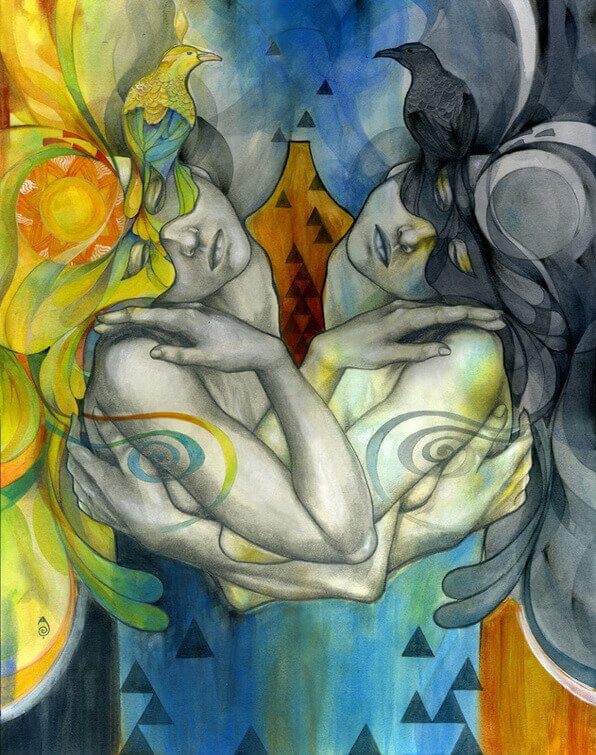Value People for How They Treat You, Not for Their Beliefs

In this society, it seems like if you’re not with me, you’re against me. Therefore, it is important to value people for how they treat you, instead of for their beliefs. At the end of the day, a belief is a state of mind in which we assume that the knowledge or the experience we have about a certain event or object is true.
Beliefs describe the educational and cultural context of individuals. But the way these individuals treat others shows something more personal: their capacity for empathy. How we treat others says a lot about ourselves.
Empathy is the ability to perceive what another person could be feeling. It also involves putting ourselves into their shoes and adopting their scale of priorities. It can be divided into affective and cognitive. Affective empathy is the ability to respond with an appropriate feeling to another’s mental states. On the other hand, cognitive empathy is the ability to understand another person’s point of view or mental state.
Empathetic people make others feel understood, listened to, and emotionally cared for. From a psychological point of view, how we interact with others is a more determining factor in the affective bonds that we create than the beliefs we hold dear.
“Beliefs are involuntary. Nothing involuntary is meritorious or condemnable. A man cannot be considered better or worse for his beliefs.”
-Percy Bysshe Shelley-
Why do we need to make an impression on others?
All the information we receive and the way that we organize the world, it all passes through our perceptive filter. Our interpretation of the reality which surrounds us is the product of our personal baggage. Baggage in the form of expectations, necessities, and values.
Our perception of others is the process through which we try to get to know and understand other people. It refers to how we perceive others, and it follows the same principles of the perception we have of ourselves. Our self-concept is intimately linked to the perception of others, because in part we learn who we are through others’ reactions.

We need to categorize others into groups, as guidelines in order to orient ourselves. This evaluation has to do with the evolution of our species, and it is an adaptive resource. We need to have an impression about others in order to adapt our reactions accordingly. We need information in order to value whether we have to appear close, be as distant as we can be, or simply show indifference.
“The most valuable gift we can give others is our presence. When our full attention embraces what we love, these will bloom like flowers.”
-Thich Nhat Hanh-
In this society, it seems like if you’re not with me, you’re against me. Therefore, it is important to value people for how they treat you, instead of for their beliefs. At the end of the day, a belief is a state of mind in which we assume that the knowledge or the experience we have about a certain event or object is true.
Beliefs describe the educational and cultural context of individuals. But the way these individuals treat others shows something more personal: their capacity for empathy. How we treat others says a lot about ourselves.
Empathy is the ability to perceive what another person could be feeling. It also involves putting ourselves into their shoes and adopting their scale of priorities. It can be divided into affective and cognitive. Affective empathy is the ability to respond with an appropriate feeling to another’s mental states. On the other hand, cognitive empathy is the ability to understand another person’s point of view or mental state.
Empathetic people make others feel understood, listened to, and emotionally cared for. From a psychological point of view, how we interact with others is a more determining factor in the affective bonds that we create than the beliefs we hold dear.
“Beliefs are involuntary. Nothing involuntary is meritorious or condemnable. A man cannot be considered better or worse for his beliefs.”
-Percy Bysshe Shelley-
Why do we need to make an impression on others?
All the information we receive and the way that we organize the world, it all passes through our perceptive filter. Our interpretation of the reality which surrounds us is the product of our personal baggage. Baggage in the form of expectations, necessities, and values.
Our perception of others is the process through which we try to get to know and understand other people. It refers to how we perceive others, and it follows the same principles of the perception we have of ourselves. Our self-concept is intimately linked to the perception of others, because in part we learn who we are through others’ reactions.

We need to categorize others into groups, as guidelines in order to orient ourselves. This evaluation has to do with the evolution of our species, and it is an adaptive resource. We need to have an impression about others in order to adapt our reactions accordingly. We need information in order to value whether we have to appear close, be as distant as we can be, or simply show indifference.
“The most valuable gift we can give others is our presence. When our full attention embraces what we love, these will bloom like flowers.”
-Thich Nhat Hanh-
This text is provided for informational purposes only and does not replace consultation with a professional. If in doubt, consult your specialist.







